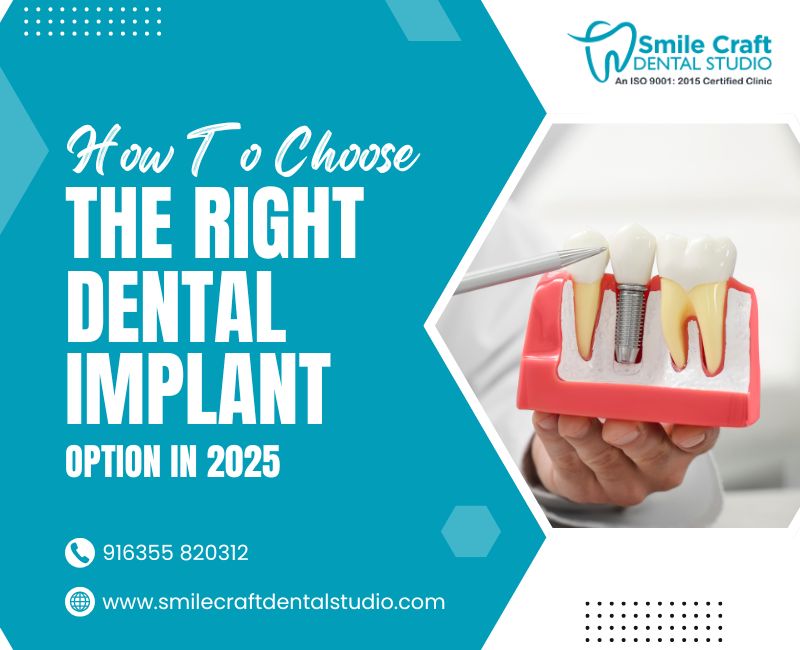How to Choose the Right Dental Implant Option in 2025

We are in 2025, and medical technology is at its peak. With advancements in dental technology, the new year offers a variety of options for missing teeth, one of which is dental implants. If you are thinking of going for implants, then this blog will guide you through the process of selecting the dental implant option that is right for you.
Understanding dental implants
Dental implants are artificial tooth roots made of titanium or other biocompatible materials. They are surgically placed into the jawbone to support a replacement tooth or bridge. Dental implants offer a natural look and feel, and they help maintain the structure of the jawbone.
Types of dental implants
In 2025, several types of dental implants will be available. Understanding the differences can help you make an informed decision.
Endosteal Implants: These are the most common type of dental implants. They are placed directly into the jawbone and hold one or more artificial teeth. Endosteal implants are typically made of titanium and are shaped like small screws.
Subperiosteal Implants: These implants are placed on top of the jawbone but under the gum tissue. They are suitable for patients who do not have enough healthy jawbone for endosteal implants and cannot undergo bone grafting.
Zygomatic Implants: Zygomatic implants are longer and are anchored in the cheekbone (zygoma) instead of the jawbone. They are an option for patients with severe bone loss in the upper jaw who cannot receive traditional implants.
All-on-4 Implants: This technique involves placing four implants in the jawbone to support a full arch of replacement teeth. All-on-4 implants offer a stable and cost-effective solution for patients who need a complete set of upper or lower teeth.
Factors to consider
When choosing the right dental implant option, consider the following factors:
Bone Health: The condition of your jawbone plays a significant role in determining the type of implant you need. A dentist will assess your bone density and structure through X-rays or CT scans.
Overall Health: Your overall health and any existing medical conditions can impact the success of dental implants. Conditions like diabetes or gum disease may require special considerations.
Budget: Dental implants can be expensive, and the cost varies depending on the type of implant and the complexity of the procedure. Discuss your budget with your dentist and explore financing options if necessary.
Aesthetic Goals: Consider what you want to achieve with your dental implants. Whether you're looking to replace a single tooth or need a full mouth restoration, your aesthetic goals will influence the choice of implant.
Longevity and Maintenance: Dental implants are a long-term investment. Some implants may require more maintenance than others. Discuss the longevity and care requirements of different implant options with your dentist.
Choosing the right dentist
Selecting the right dentist is just as important as choosing the right implant. Look for a dentist with experience and expertise in implant dentistry. Ask for recommendations, read reviews, and schedule consultations to find a dentist you trust. By taking these steps, you can ensure a successful and satisfying outcome. Remember, dental implants are a long-term investment in your well-being, so take the time to make the best choice.
